#< for karlach
Note
just saw ur gale/mystra analysis post. im new to the game and dnd lore and honestly… ur take on their relationship feels like the most natural/compelling one??? esp since its all too easy to simplify topics that have many facets and nuance….
thanks for sharing i love analysis and reading people’s takes on narratives : D
My pleasure! (Bee from the future here: congrats, you spawned another meta!)
I love complicated characters, WAY more than I like a clear cut-and-dry case. Flaws, to me, are what make a character compelling and lead to interesting stories about them with choices that can get them into situations. I'm both writing a fanfic and running a campaign where I'm playing as Gale, and in the interest of portraying him properly and in-character, I've gone into SUCH a deep dive into all the decisions and facts that make him him.
It helps to, y'know, also be in love with the fictional wizard, but I digress
The thing about Baldur's Gate 3 is that no character in there is perfect. I've seen a couple analyses about the theme of continuing cycles of abuse vs breaking out of them, but in my mind, in terms of the characters themselves, it goes like this:
The origin characters have just come out of the lowest situation of their lives (Lae'zel being the exception; being tadpoled is a gith's worst nightmare. You're seeing that lowest situation in real time).
Not the lowest point, mind. Gale's lowest was probably the day after he got the Orb. Wyll's was probably the day his father cast him out. Karlach's was the day she lost her heart. But the lowest, accepted normal for them is what they've just left.
They're then thrown out of their depth and forced to rely on you to live. That's #1 priority: living. We get the extremes of these characters before we get their nuances, because they're quite literally at their breaking points.
Then once we get to know them, we see their wants, their hopes, their fears, as they open up to us. Every companion's story is at their own pace, but they all have a moment where they ping-pong between despondency and desire. Sometimes that desire is what we know isn't good for them, like Shadowheart wanting to be a Dark Justiciar. Sometimes that despondency is only for a flicker, like Astarion's realization that he's condemned 7000 people to a half-life of tortured spawnhood for as long as he's been a vampire.
Romance lets us crack all that open more, because if you pursue a romantic partner, they see you as their closest confidant. They WANT to trust you, so they're more willing to explain how they see the world and what decisions they want to chase.
And then their endings. Those often get simplified as good/bad, continuing the cycle vs breaking away from it. But how is Duke Wyll on the same platform as Ascended Astarion? He's not evil, he's not even entirely unhappy. He might even have broken out of his abusive cycle with Mizora, if you played your cards right. And Ascended Astarion is overjoyed, even if he is remarkably more cold.
I think that the endings are less a dichotomy of "this is good for them" vs "this is bad for them," and more one of "bringing out their best traits" vs "bringing out their worst."
Wyll's worst trait is being willing to sacrifice his own wants for whatever people desire of him. His best is standing for what he believes in and ensuring people are safe. Duke Wyll leans into that necessity to turn the other cheek in the name of people who count on him, while the Blade of Avernus has seized that moral compass of his and forged it out of mithral.
Shadowheart's worst trait is blind obedience at the cost of her individuality, while her best is her desire to be kind to things that don't deserve to be hurt. Mother Superior Shadowheart's whole life is defined by Shar. Selûnite Shadowheart's life is defined by her hospitality, especially towards animals.
Karlach's worst trait is how willing she is to accept that things are (to quote her) fucked, letting despair override hope. Her best is her durability in the face of horror. Exploded Karlach would rather die than try to work out a solution in the Hells, because she's terrified of facing Zariel alone. Mindflayer Karlach has accepted her fate and decides to give up her heart and soul to go out a hero, losing who she is. Fury of Avernus Karlach is willing to keep fighting for a solution, and by the time the epilogue happens, she's got her sights set on one.
Astarion's worst trait is his desire for power over people. His best trait is using the tools he has to his advantage. Ascended Astarion has let his powerhungry nature and paranoia lead all of his decisions, with his sights set on dominating mankind. Spawn Astarion has embraced what he is, and carved out a life for himself where he can do as he pleases.
Lae'zel's worst trait is her blind fanaticism, while her best trait is her individual dedication, making her loyalty a marriage of the two. Ascended Lae'zel is a meal for the lich queen, turning a blind eye to all Vlaakith's tried to do to her and literally being consumed by her fervor. Champion of Orpheus Lae'zel has turned her loyalty into something productive for diplomacy. Faerûnian Lae'zel has seized her individuality by the throat and decided her own future.
And then Gale. Gale's worst traits are his hubris and, paradoxically, his low self worth. His best traits are his creativity and wonder for the world. God Gale is the embodiment of ambition, having burned away all but that in pursuit of perfection. Exploded Gale has let his remorse blot out all hope for a redemption in which he does not die, because he thinks he's earned it. Professor Gale leads his life by embracing the school of Illusion and letting his creativity thrive, teaching others to do the same. House Husband Gale has multiple creative projects he's working on, and Adventurer Gale is always finding new sights to see and wanting to share them with you.
There are arguments to be made on which ending the origins are happiest in, certainly, or which one benefits them the most, but each ending represents the extreme of a facet they possess.
So with all that, there's a sort of malleable method to figuring out the ins and outs of a character.
You take their endings—all of them, all variables they can have—and reverse-engineer the flaws and details they carry. Then you start to notice how those work into their approvals for minor things: Astarion approving of your taking of the Blood of Lathander, or Shadowheart approving of standing up for Arabella. Getting a list of approvals and disapprovals is helpful, but having those endings on hand tells you why they react like that to a majority of their decisions.
You take their romance-route explanations of how they act, and apply those to earlier decisions. Astarion's confession to manipulating you and Araj-prompted admittance to using himself as a tool brings to light how he reacts to your decisions, regardless of his actual opinions on them. Wyll's fairytale romance and love of poetic adages speaks to his idealistic nature, and why he takes a sometimes-blinded approach to decisions in which the "right" answer isn't always the smart one.
You take their beginning reactions to stress and use that to measure how future decisions impact them. Lae'zel locks down and gets snappy when she's scared, while Gale immediately turns to diplomacy. Shadowheart has gallows humor, while Wyll turns to quiet acceptance. If they break from these and seem even worse, you know the situation is more dire in their minds than having seven days to live.
And then you factor in all their fun facts and dialogue choices and backstories.
A wizard falls in love with a goddess and her magic, attempts to retrieve a piece of her power for her, is scorned for his attempt and is cursed to die.
Give that backstory to a Tav. Look at how it changes.
A chaotic good wizard fell in love with a goddess, thought retrieving a piece of power for her would be a showy bouquet of love, and was punished for not thinking things through.
A lawful evil wizard fell in love with a goddess's power, snatched the most precious thing she owned, tried to use it to barter his way through to the secrets she kept, and was given a swift retribution.
Same backstory. Same class, same act, same goddess. Wildly different connotations. Wildly different conclusions as to who is in the wrong.
If you take all there is to Gale, all that the game shows us makes up his character, and apply it to this backstory, you get what really happened:
A wizard, enamored with magic, fell in love with a goddess. His desires led him to want more than she was willing to give. In his well-buried fear of inadequacy, he concluded that the reason she wouldn't indulge his ambitions was because he just hadn't proven himself worthy enough. So he tried to prove himself, but he lacked the context for what he was proving himself with. And the goddess, seeing a weapon that had killed her predecessor, saw this ambitious wizard as losing his way and coming for her just like the weapon's creator had. She was angry, she withdrew his link to her, and he didn't know why. So he drew the conclusion that she took his powers to punish him, and let that encompass his fall from grace.
Was he wrong to reach for what was out there?
If you knew that the answers to everything you cared about were not only known, but kept by someone you loved—someone who adored you—what would you do to ask to see them? What if your curiosities were if there were other planets with life out there, or how dark matter worked, or whether or not we could one day travel in the stars? What if it was the potential cure to an illness that's little-understood, or the way to make a program you dreamt up, or the scope of the true limits of your artistic talents? Would your answer change?
Was she wrong to cut him off?
If you were once hurt, and the person you loved—the person who adored you—brought the thing that caused it to your door, believing you'd want it, how would you react to seeing it? What if that thing was someone you thought you'd broken contact with, like a friend or family member you'd been trying to avoid? Would your answer change?
That's the sort of scope that needs to be applied to this, on both sides. You have to take the perspectives of each party, and apply two analogies instead of one.
Gale saw the vastness of the universe, untold wonders, the solution to every question he could ever dream up, and saw Mystra as withholding this from him because she thought he just wasn't worthy enough. To claim Mystra knew his perspective does her a disservice.
Mystra saw a cruel weapon she thought long gone, in the hands of someone who could use it, brought right to her, and thought Gale was willingly following the path of Karsus. To claim Gale knew her perspective does him a disservice.
Should Gale have researched his prize more, so he knew just what he was obtaining? Should he have kept his hands off a cursed book that would devour him? Of course he should have.
Should he have given up on chasing his dreams?
Should Mystra have understood that Gale's pursuit of power was nothing like Karsus'? Should she have communicated when she was angry instead of giving the cold shoulder? Of course she should have.
Should she have given him the benefit of the doubt?
That's the root of their falling out. That's what leads to hurt being inflicted. Understandable, human reactions to the situations they perceive. Unhealthy, unwise choices made afterwards.
You work backwards from this to figure out their dynamic as Chosen and goddess. You work forward from this to understand more of where Gale and Mystra are during the events of Baldur's Gate 3. Gale reached too high, and understands this. His goddess hates him, and he regrets this. Mystra isolated Gale, and understands this. Her Chosen wants redemption, and she wants to make it happen.
Just like we took Gale's character into account, we also have to take Mystra's.
A goddess is faced with a problem. She uses someone who's desperate for approval to solve it, by telling him to kill himself.
An evil goddess is faced with a threat to her reign. She sees someone who's unfailingly loyal and hates himself, and elects to have him tear himself apart rather than do anything about it.
A good goddess is terrified of the future. She sees someone who tried to hurt her, who's going to die anyways, and tells him to use it to save the world.
Same story. Same act, same power, same pawn. Different character. Different perspective. Different outlook on whether or not this is the right thing to do.
Mystra has died, multiple times, to people trying to stake claim to her domain. Someone appears with the very thing that could do it again, right as she's regained her stability.
She does not see mortals the way mortals do. She is timeless. She is eternal. She has a duty to protect billions of people, and one person lost to protect that number is more than worth the sacrifice.
People like to bring up the Seven Sisters as proof of Mystra's cruelty. For those unaware, Mystra asked permission to, then possessed, a woman, used her to court a man (with dubious consent from the woman), and bore seven children, all of whom were capable of bearing Mystra's power as Chosen without dying. The woman she possessed was killed in the process (reduced to no more than a husk, then slain by her now-husband, hoping to end her suffering), and the husband was horrified by the whole story.
Mystra needed Chosen in order to restore herself in the event that she was killed again, to prevent magic as a whole from collapsing and wreaking havoc on the mortal realm, like it had in the few seconds Mystryl had been dead. Elminster, Khelben Blackstaff, and the Seven Sisters contributed to this. The more Chosen she has, the better; what happens if Elminster dies? She can't afford to have all her eggs in one basket.
Mystra has Volo (yeah, that Volo) as a Weave Anchor, imparted with a portion of her power to prevent the Weave from shredding itself to pieces in her absence. All Chosen of Mystra are Weave Anchors by nature. The creation of Weave Anchors was mandated by Ao, the Overgod, and Chosen are the best way to make sure those anchors aren't drained by ambitious people hoping for godlike power. Chosen can, and will, defend themselves, unlike static locations (which Mystra also has). The anchors are why the Weave wasn't completely obliterated during Mystra's last death, when the Spellplague rose up, because they stabilized the Weave around them.
Everything Mystra does is in the name of the big picture, to prevent a catastrophe like the fall of Netheril from happening again. Her restriction of magic, her numerous Chosen, her creation of Weave Anchors, her destruction of those who would claim her power, it's all in the name of the stability she's been charged with. Dornal Silverhand's grief and Elué Silverhand's death, while regrettable, were worth it to bring seven more anchors into existence to save all of the Material.
So someone appears with the Crown of Karsus, potentially powerful enough to try to kill the other gods in the name of the Dead Three. She can't risk being a target of them. She can't risk the destruction of magic again.
Gale is going to die. He lives in fear. He begs for forgiveness.
In Mystra's eyes, she's offering him the best outcome. She'll let him die in service to her, to save Faerûn, and she'll forgive him. He's going to die anyways, and if he does this, she'll give him everything (she thinks) he could ever want in her realm. She's asking him to do what (she thinks) is the right thing.
"She would consider what she considers to be forgiveness."
Notably, she leaves the decision in his hands. She doesn't have Elminster lead him to the Nether Brain. She doesn't activate him as soon as he's there. When he lives yet, she doesn't revoke the charm that keeps him stable. And when he declines, when he lets it go and starts pursuing Karsus' path, she doesn't smite him on the spot.
She is (she thinks) being incredibly patient. If Gale is going to try to be Karsus II, she's ready for him. If he decides to walk off and keep the Orb, he's dug his own grave in the Fugue Plane (those who don't have a god to claim them roam endlessly as husks and form a wall of bodies around the City of Judgement).
From her perspective, she's not being unreasonable. But from the perspective of a mortal, she absolutely is.
"Now, I have a question for thee: what is the worth of a single mortal's life?"
This is a question she cannot answer properly.
I think a lot of characterization is lost whenever someone paints one of them as being totally in the right. But I also think you have to be invested in them as characters to want to see that characterization. If you want to write about Mystra, you have to try to get into her head, analyze the decisions she made, figure out why she thinks she was right, and follow the pattern.
Gale's sacrifice is a very predictable thing for her to ask for.
#bg3#gale dekarios#gale of waterdeep#mystra#long post#like really long post holy hells#did not expect this to go on for this long#swearing tw#< for karlach#oh yeah#astarion#karlach#wyll ravengard#shadowheart#lae'zel#ask bee
300 notes
·
View notes
Text
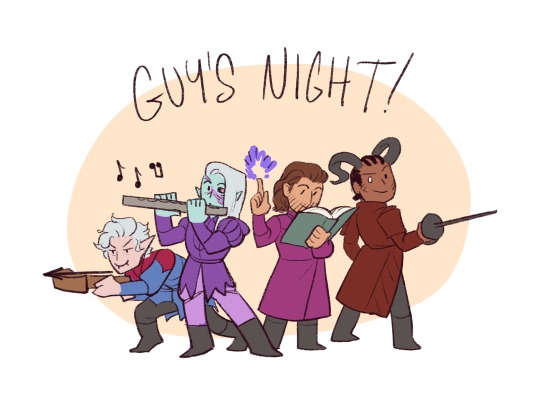
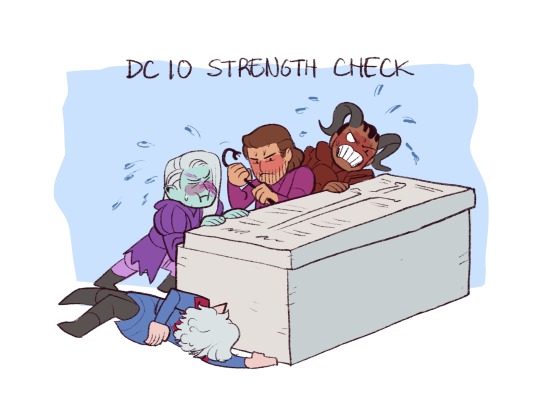
The strength economy is in shambles.
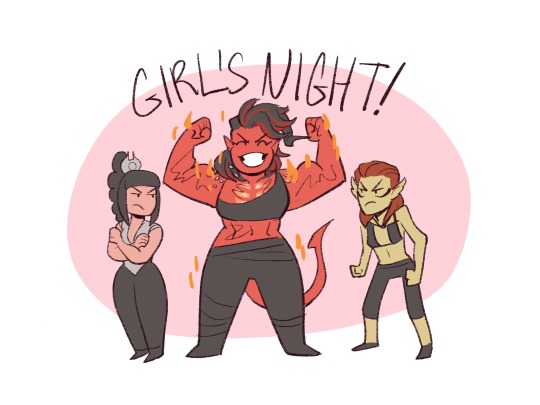
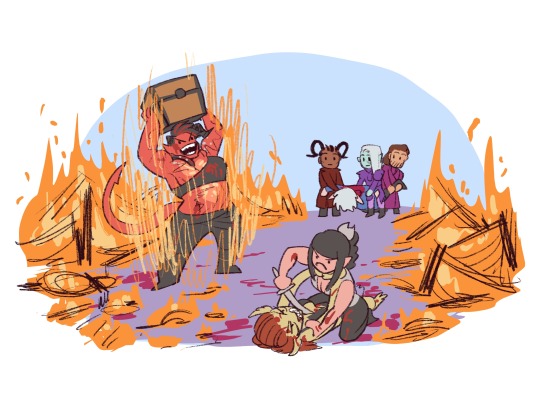
100% Karlach just thinks a deathmatch is a fun friendly time
70K notes
·
View notes
Text

im cooking
#bg3#gale of waterdeep#astarion#karlach#shadowheart#lae'zel#wyll#halsin#not art#didn't try to fit jaheira or minsc in there. or withers#or minthara#haven't played with minthara yet so idk her. but. got the rest of the polycule pretty good i think
49K notes
·
View notes
Text
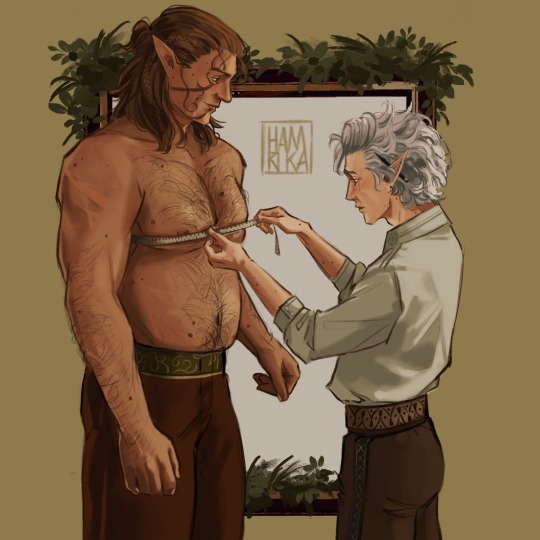
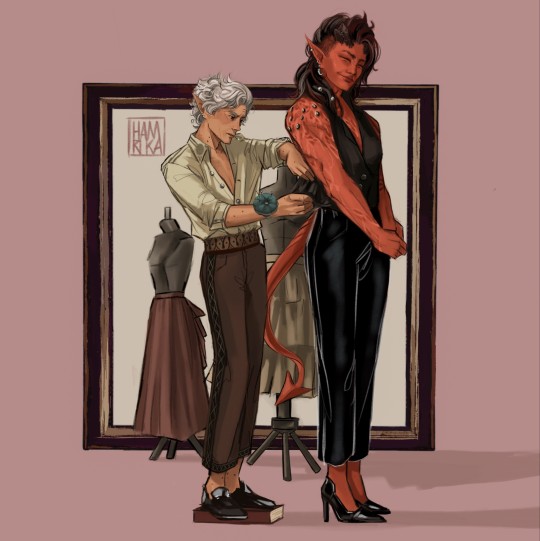
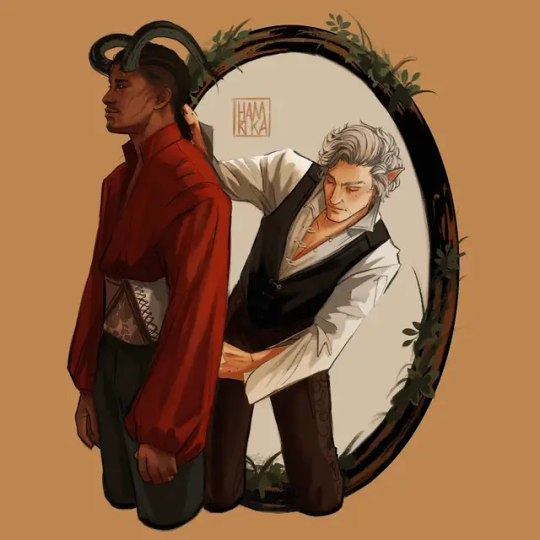
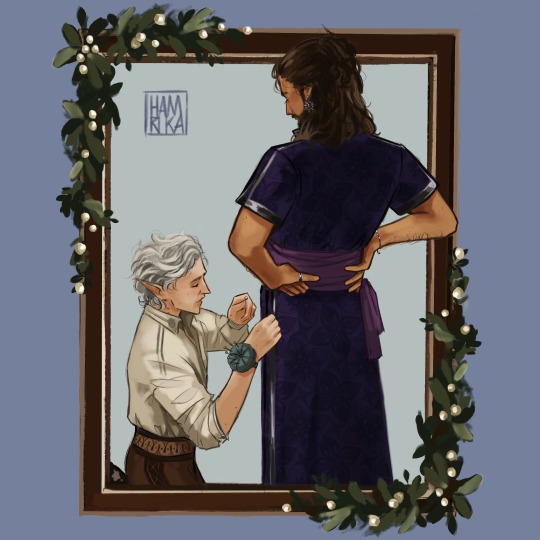
The continuation of tailor Astarion ✨️
#fanart#astarion#baldur's gate 3#baldurs gate fanart#wyll ravengard#karlach#gale dekarios#gale of waterdeep#bg3 wyll#astarion fanart#bg3 gale#karlach bg3#halsin#halsin bg3
36K notes
·
View notes
Text
Somebody translated the infernal runes face tattoo that you can put on your character and the runes on the forhead literally just spell "forhead", the runes on the nose spell "nose" and the runes on the chin say "chin"
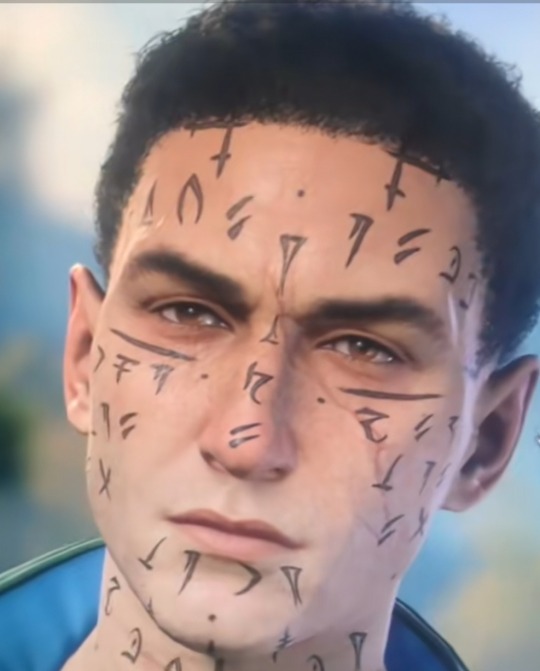
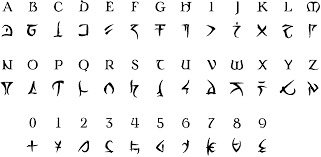
64K notes
·
View notes
Text
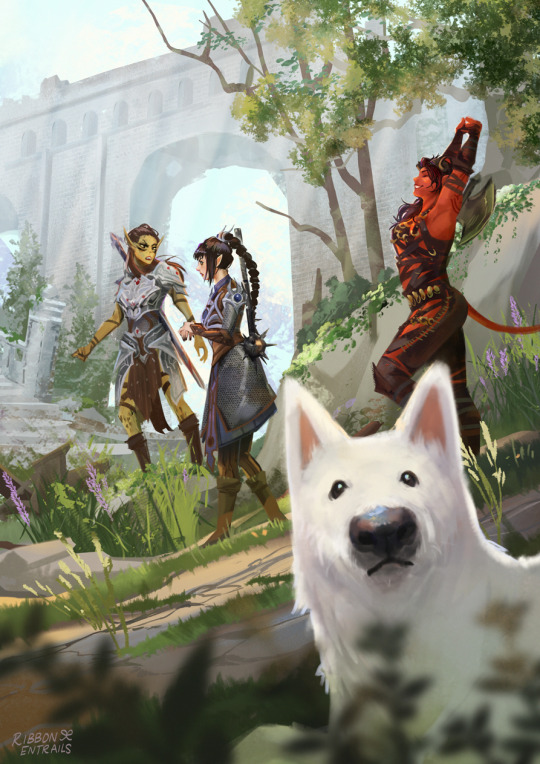
Love them✨
69K notes
·
View notes
Text
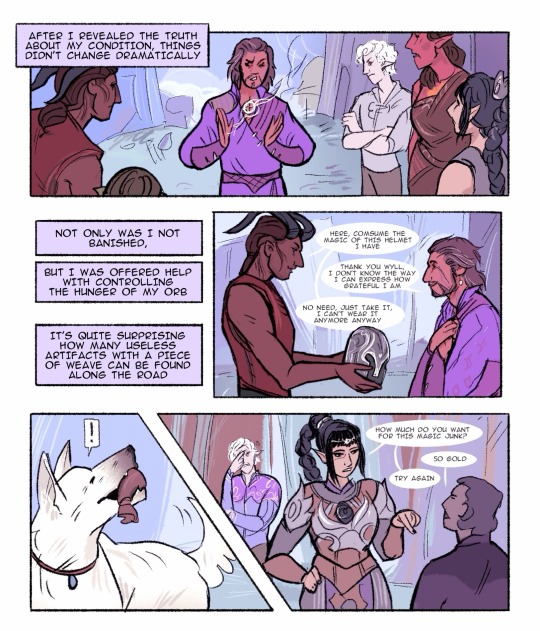
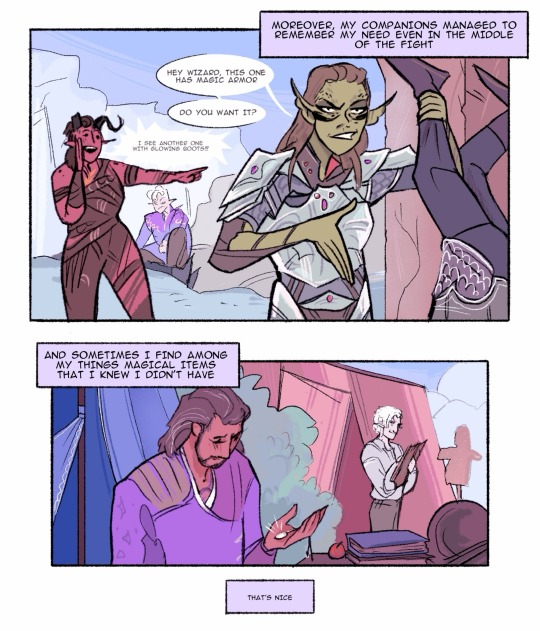
a little self-indulgent comic :>
#Astarion is a feral cat who brings dead rats to his favourite human#bloodweave#hehehe#baldur's gate 3#bg3#gale dekarios#gale of waterdeep#bg3 gale#bg3 wyll#wyll ravengard#bg3 scratch#bg3 shadowheart#bg3 karlach#bg3 lae'zel#bg3 astarion#astarion#astarion ancunin#baldurs gate 3#so many tags omg
33K notes
·
View notes
Text
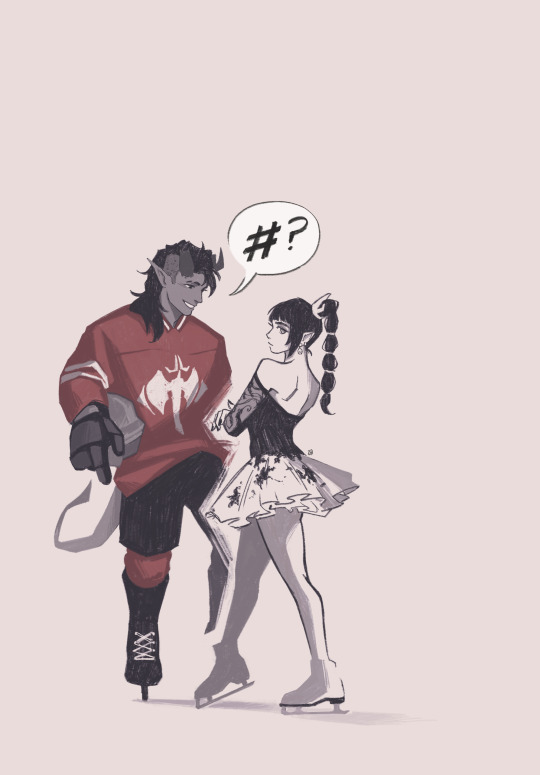
give her a CHANCE!!!
31K notes
·
View notes
Text

yeah , don't know if anyone notice it but I used the face from the spongebob meme xD
27K notes
·
View notes
Text
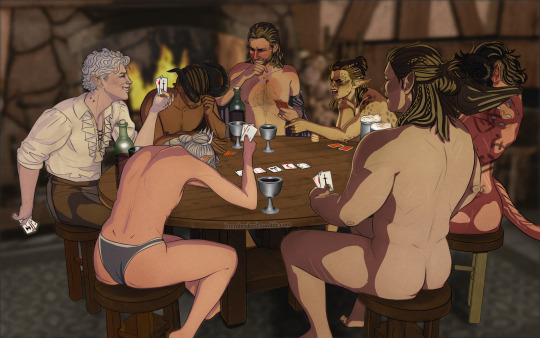
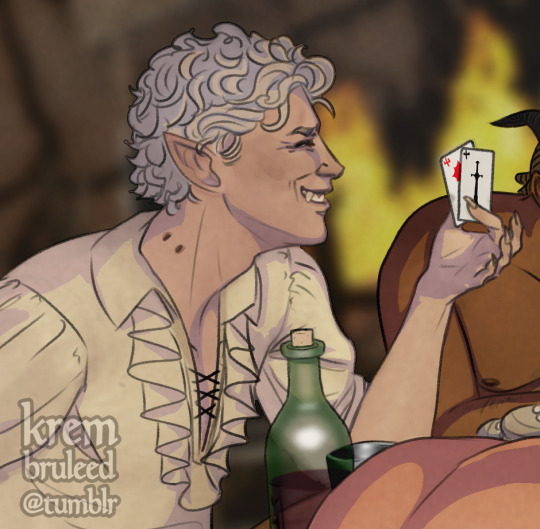
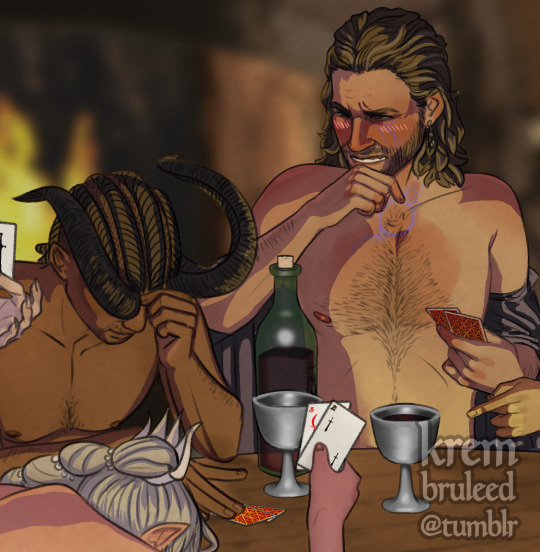
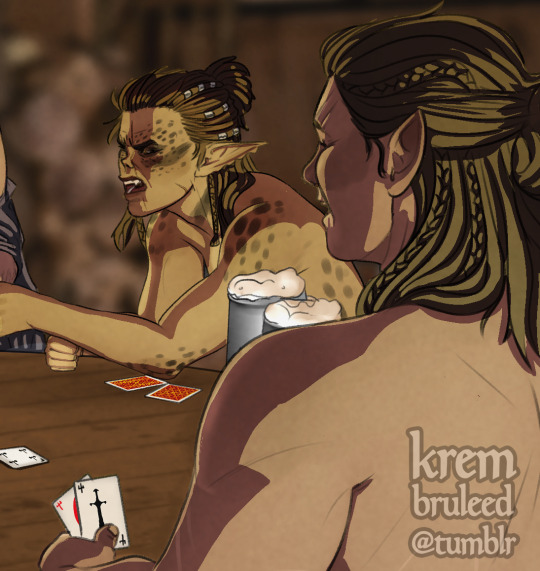
astarion is cheating
#bg3#baldur's gate 3#gale of waterdeep#wyll ravengard#karlach#astarion#shadowheart#lae'zel#halsin#half these fools cant lie worth fuck. terrible at cards smh#krem scribbles
34K notes
·
View notes
Text
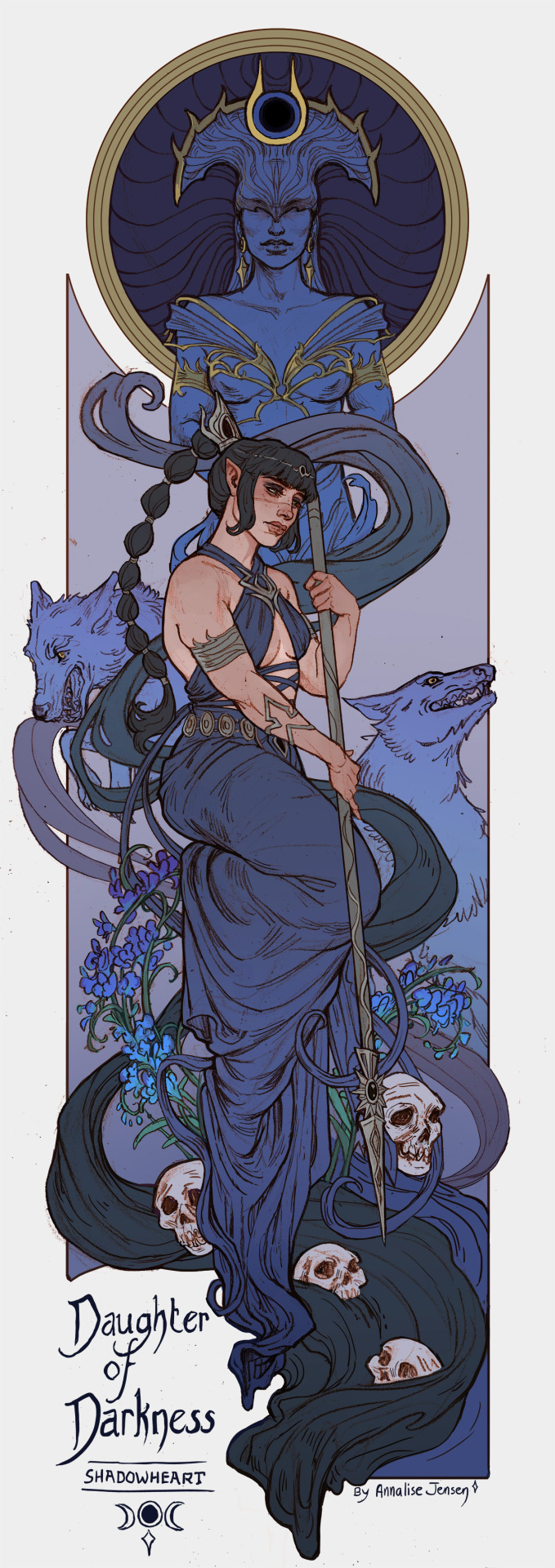
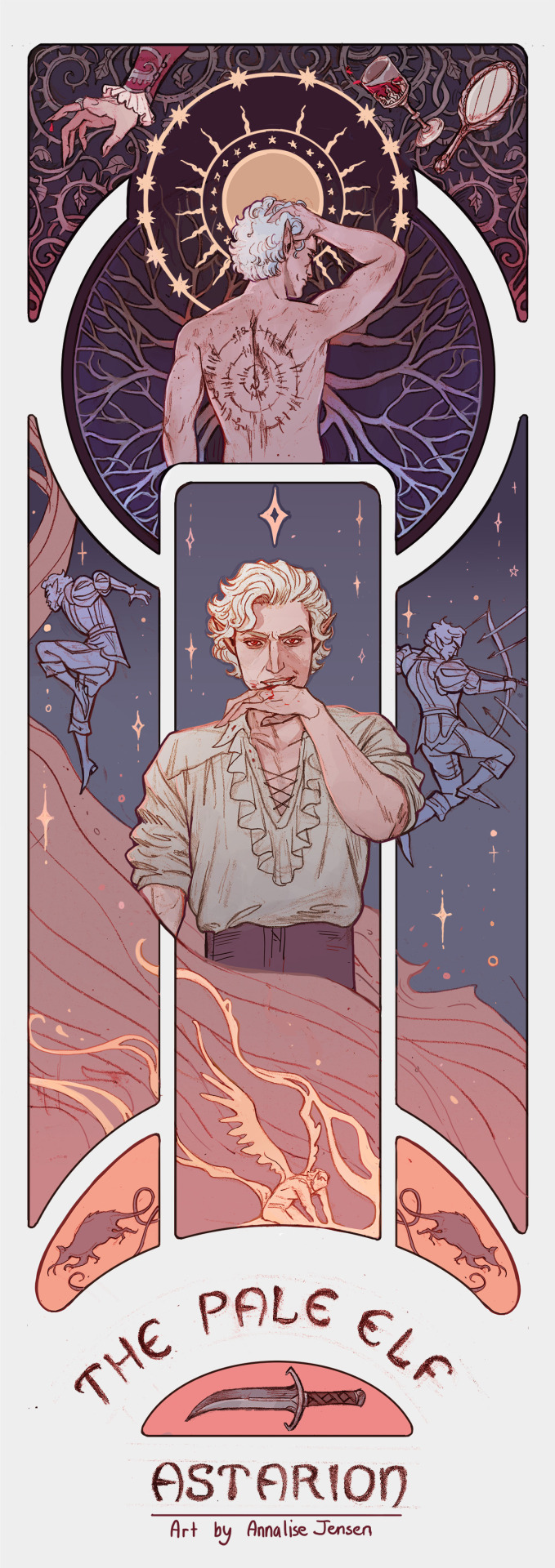
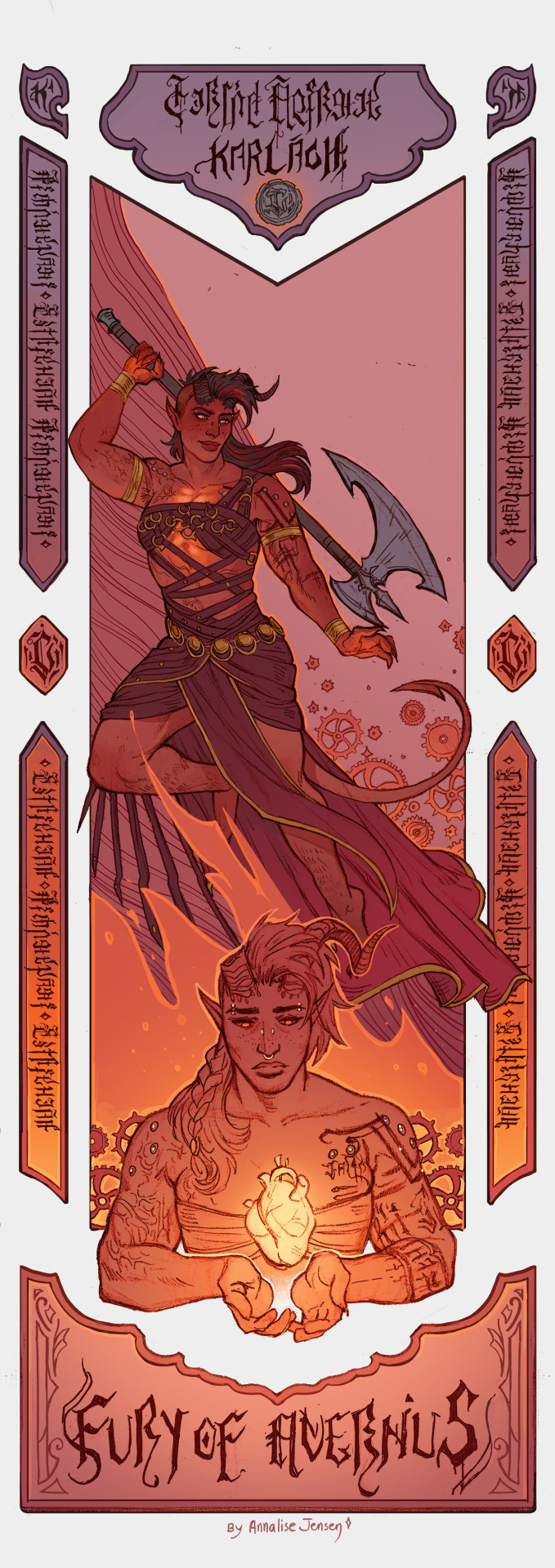
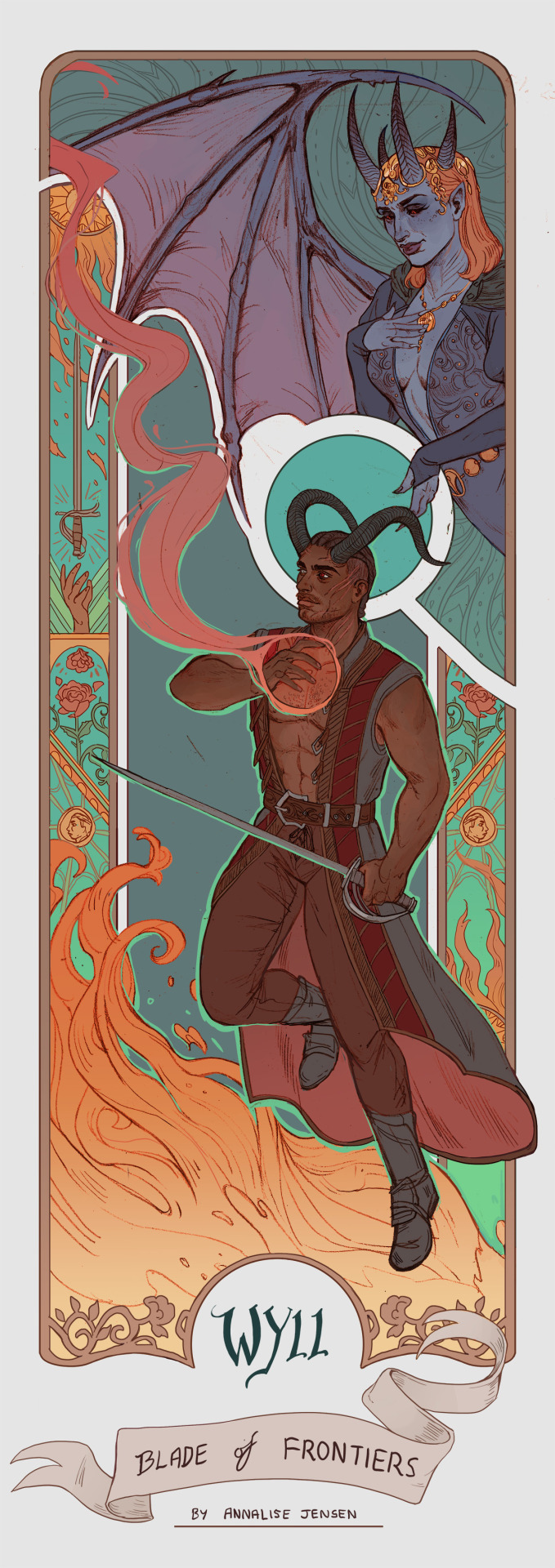
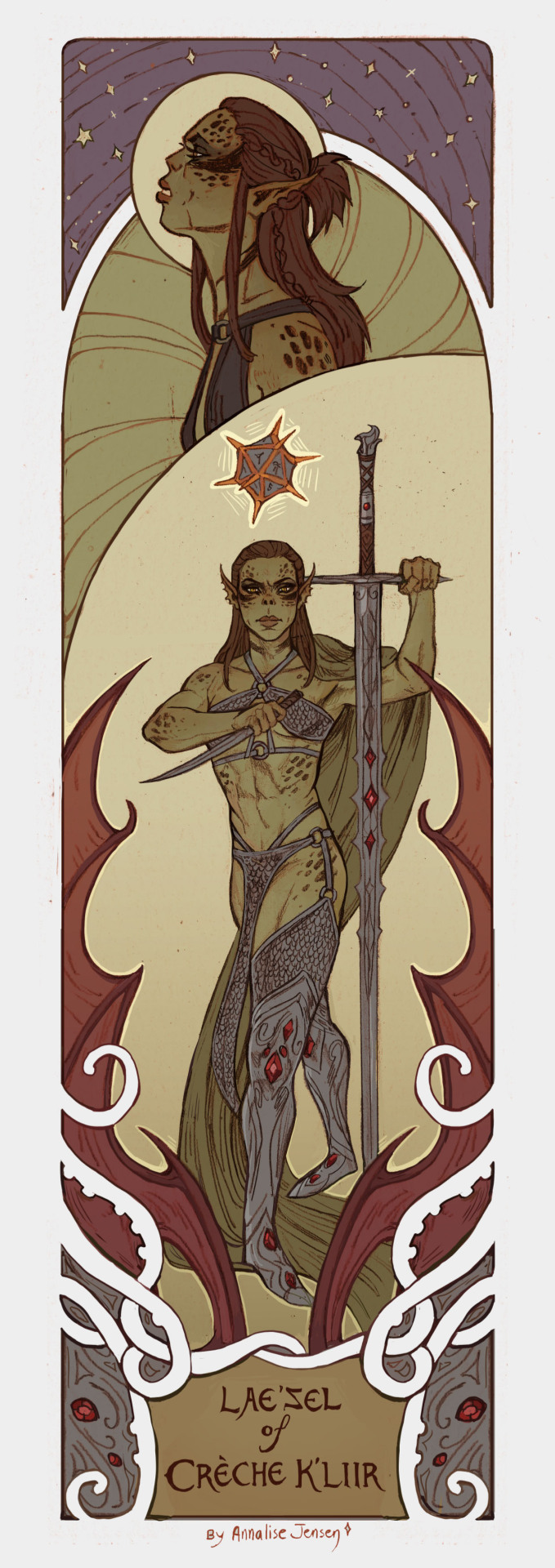
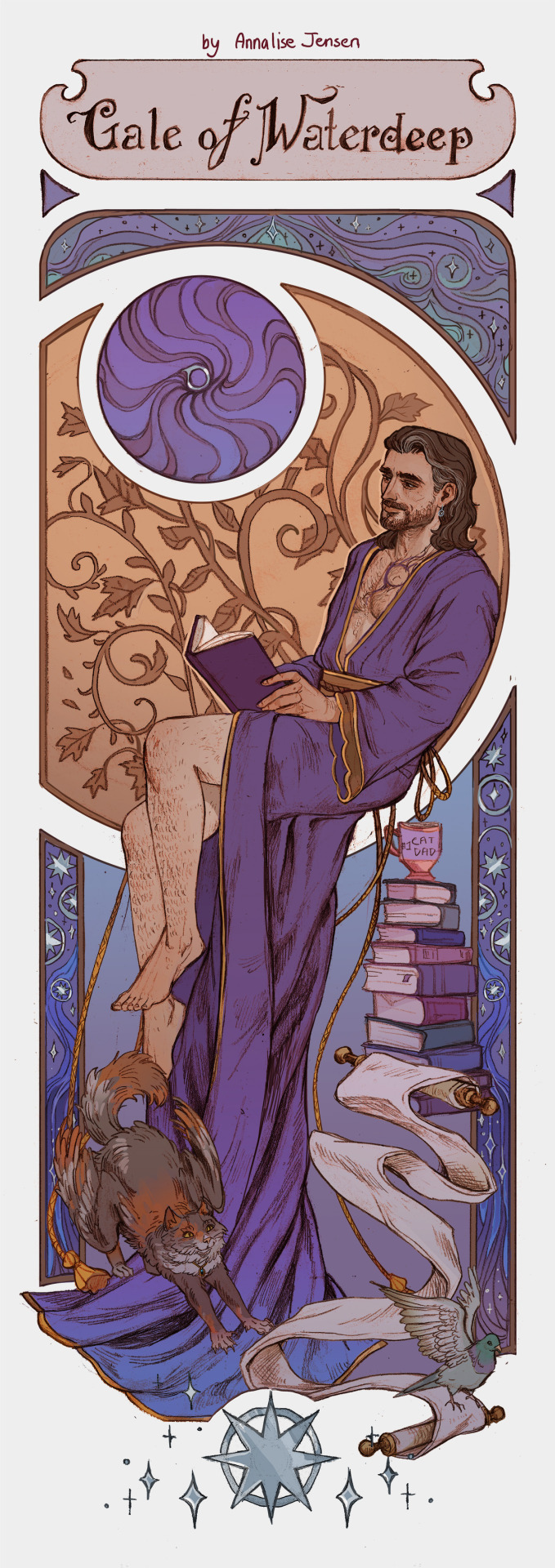
The Main six Baldur's Gate Companions
#baldur's gate 3#bg3#bg3 fanart#astarion#karlach#wyll#shadowheart#lae'zel#gale#baldurs gate#my art#wyll ravengard#gale dekarios#gale of waterdeep#mizora
54K notes
·
View notes
Text

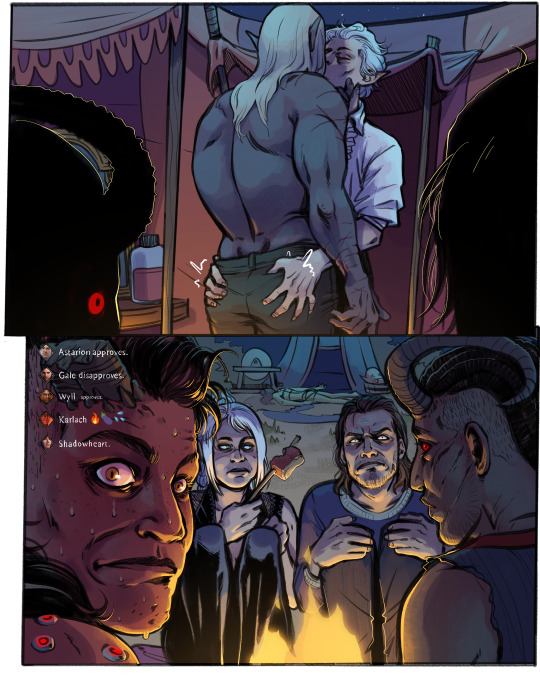
have you seen this man's kiss in freecam. he just goes for it. he just grabs it two-fisted by the handful anytime anywhere. are you telling me nobody has anything to say about this.
#art#bg3#baldurs gate 3#astarion#karlach#gale dekarios#shadowheart#wyll ravengard#lae'zel#DU drow#durge
32K notes
·
View notes
Text
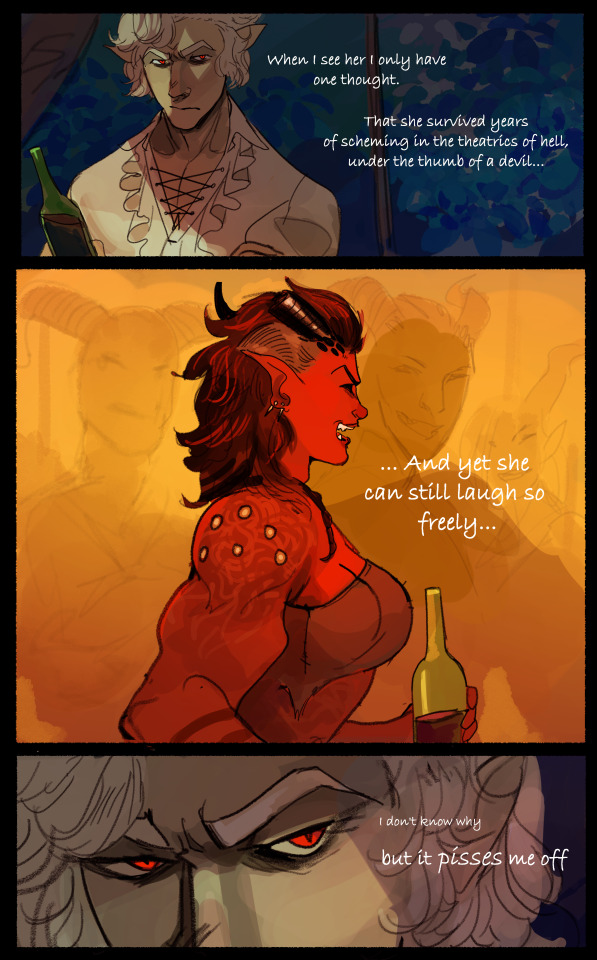
I have feelings about how these two are mirror opposites in reaction to monstrous trauma.
I have spicier stuff on my Patreon.
⭐⭐⭐⭐
#baldur's gate 3#karlach#astarion#comic#art#bg3#bg3 fanart#artists on tumblr#tiefling#dnd#I wish they had more conversations about this#karlach embraced life while astarion actively rejected it#rpg
42K notes
·
View notes
Text
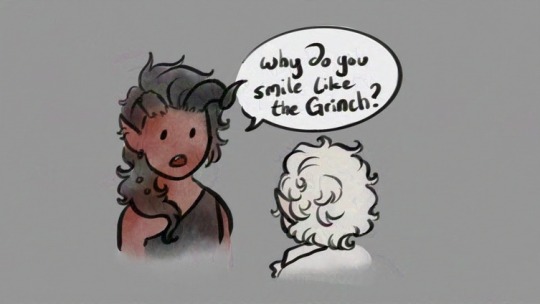
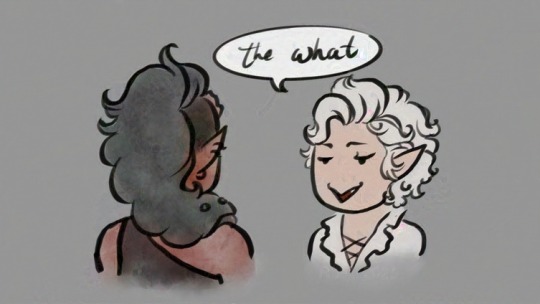

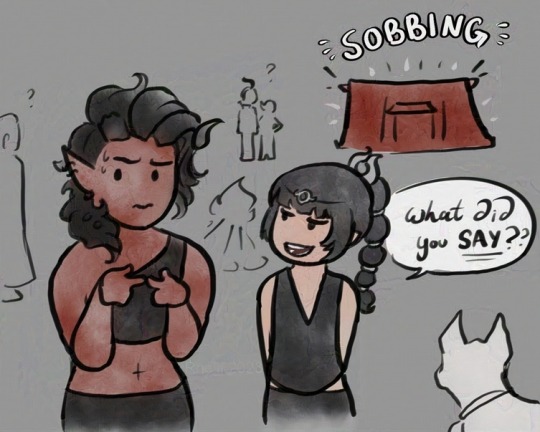
This has been in my mind since August but I couldn't figure out which character would say it. Then I started a Karlach Origin run and realized: Karlach. Karlach has a face that knows what The Grinch is.
#baldur's gate 3#bg3#karlach#astarion#the grinch#doodle#you'd cry too if you had an image of the Grinch beamed directly into your brain#4-panel comic#fanart#artists on tumblr#this crossed 10k notes and that's more than I've ever gotten on anything and I'm scare
30K notes
·
View notes
Text
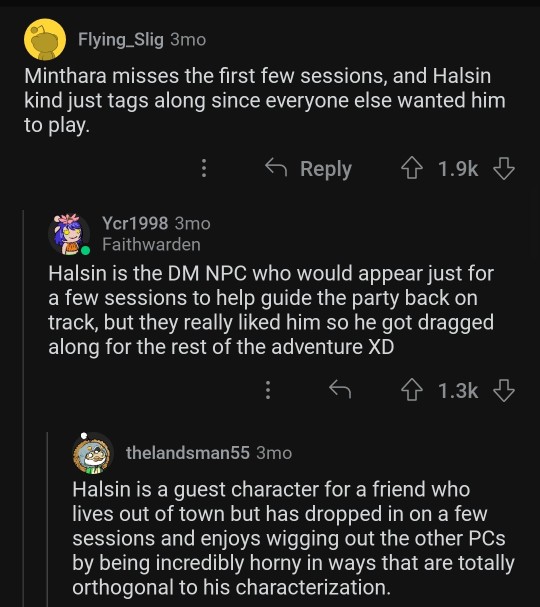
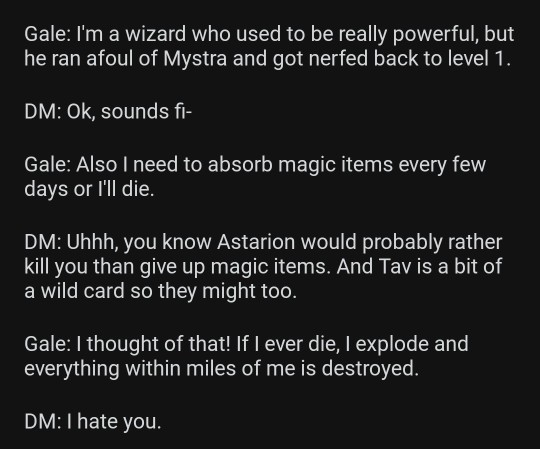
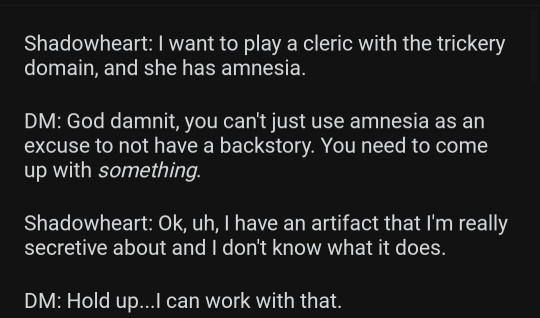
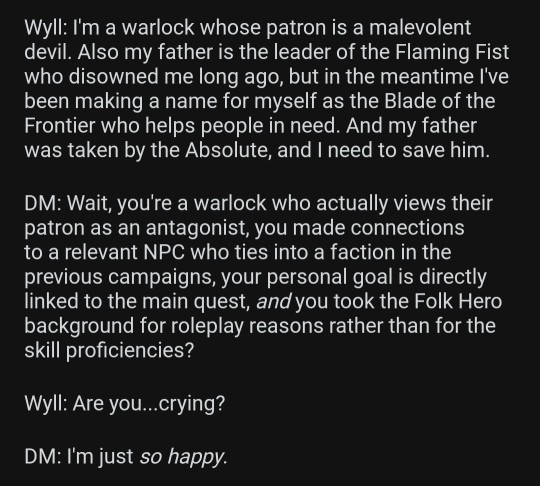
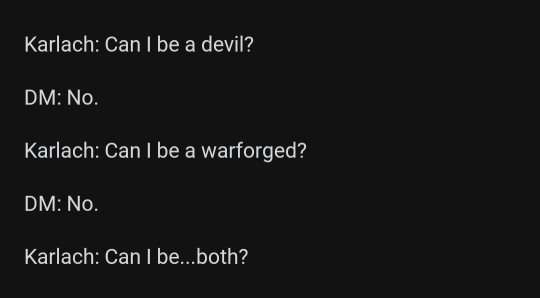
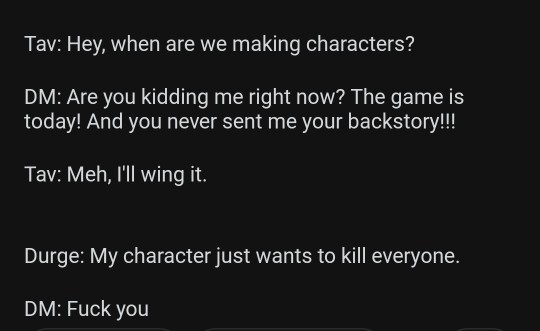

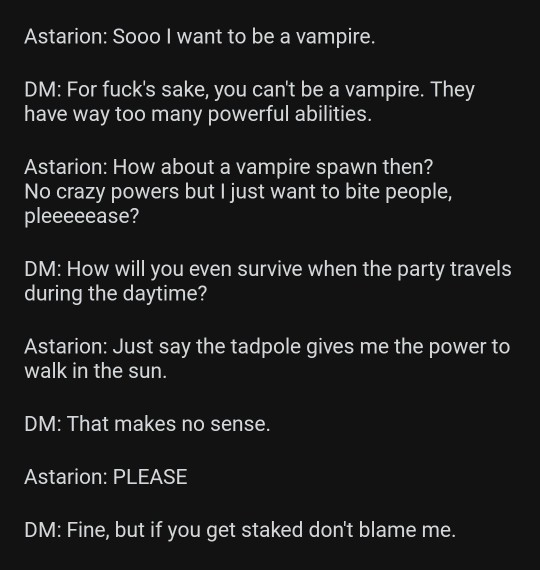
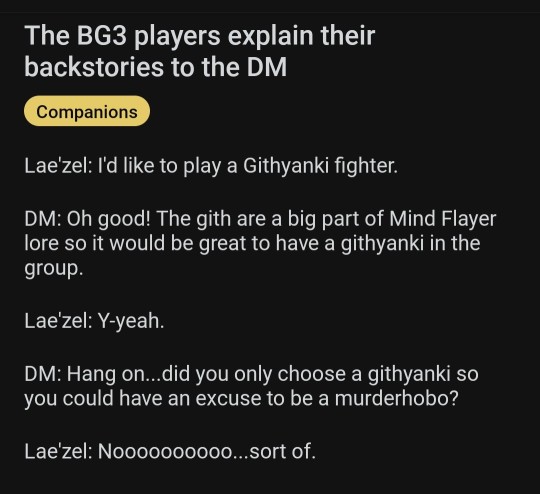
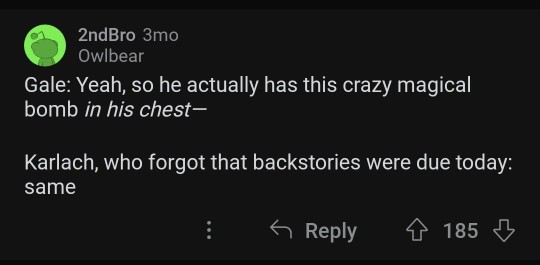
#reddit#baldurs gate 3#bg3#lae'zel#minthara#halsin#astarion#gale dekarios#shadowheart#karlach#wyll ravengard
28K notes
·
View notes
Text
the pretend plot of bg3: you've gotta get these tadpoles out and stop a giant floating brain with delusions of grandeur
the real plot of bg3: in order to date us (the party) you must defeat our seven evil exes: a half-demon warlock patron, the literal goddess of magic, a vampiric lord, an insane cult leader , an archdemon, the goddess of darkness, and finally, the Trauma
#honestly the brain can wait i have lovers to collect#and avenge#bg3#baldur's gate 3#shadowheart#wyll ravengard#astarion ancunin#astarion#gale of waterdeep#gale dekarios#karlach#karlach cliffgate#lae'zel
23K notes
·
View notes